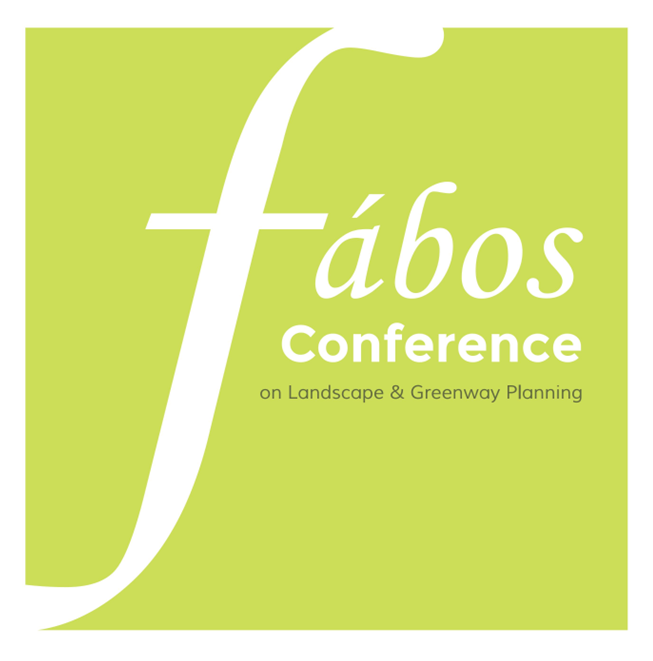Keynote Speakers
Keynote Speakers for the Year 2025
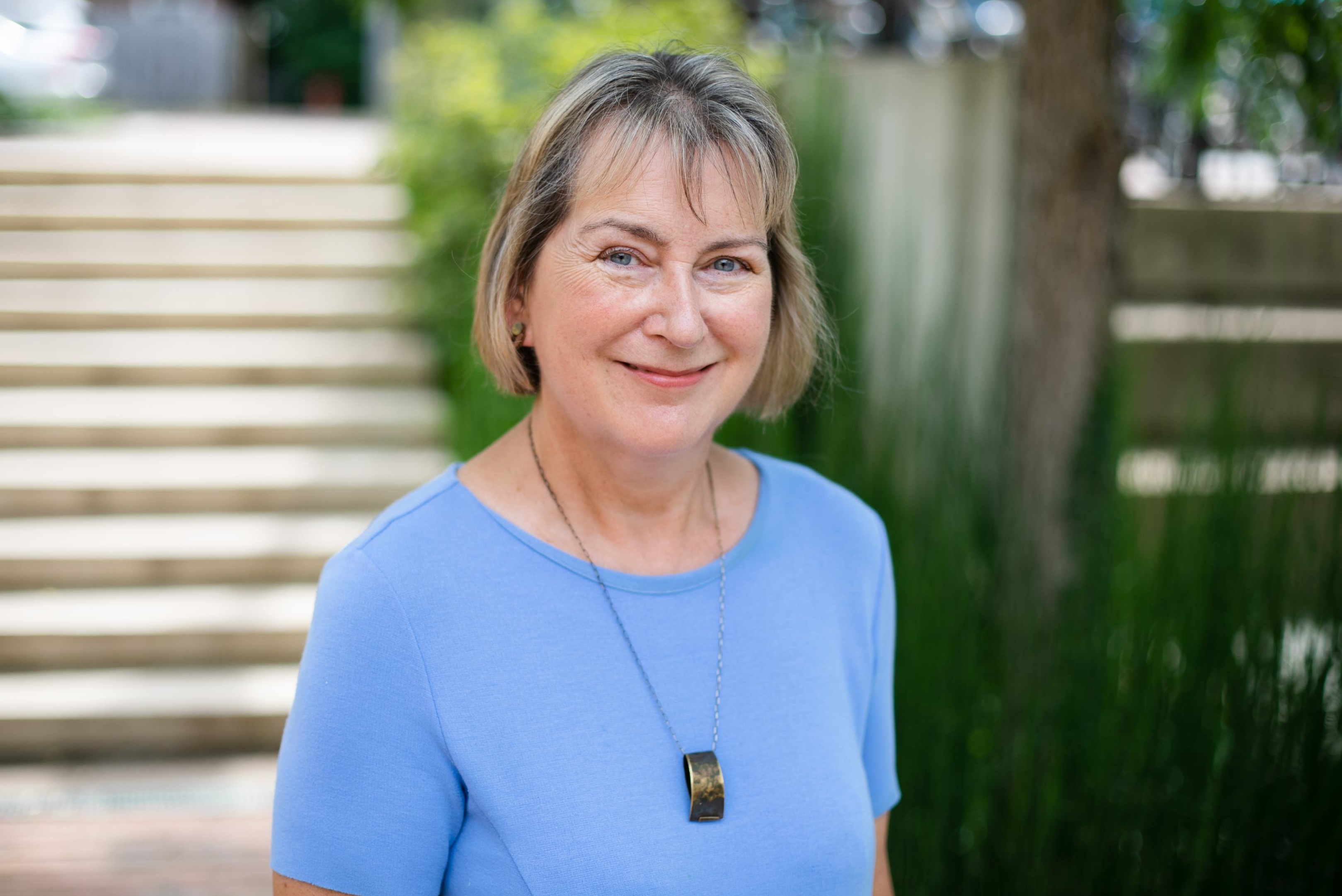
Jenny Roe
Dr. Jenny Roe is a Professor and Director of the Center for Design & Health in the School of Architecture, University of Virginia. An environmental psychologist and former head of Landscape Architecture for an international architectural practice, she writes, lectures, and consults for a wide range of academic and public audiences on human health-centered design for the built environment. She is an expert in restorative environments that support mental health including an important role for public parks and urban green space. Her book on this subject, Restorative Cities: Urban Design for Mental Health and Wellbeing (Roe and McCay,2021) explores a new way of designing cities that puts mental health at the forefront. A companion book under development will set out an evidence-based approach for designing interiors for mental health, Restorative Architecture, the Science of Design for Mental Health and Wellbeing” (Bloomsbury, 2027).
Roe has won numerous awards and research grants exploring a rich variety of architectural and landscape contexts and their psychological impact on people. Her scholarly outputs include over sixty peer review publications including for the World Health Organization and the Lancet. She sits on the board of directors for The Center for Advanced Design Research & Evaluation (US), is an advisor for the Design Council (UK) on health-related design, and recently joined the Scientific Advisory Board for the Max Planck Institute for Human Development.
She is former Senior Research Leader in Human Wellbeing and Behavior Change for the Stockholm Environment Institute where she worked with environmental scientists and health professionals to find solutions to build sustainable, resilient and healthy cities across the globe. Prior to academia, she was Principal Landscape Architect in a multi-disciplinary architectural practice in London called Sprunt specializing in social housing, educational and healthcare design.
For more information please refer to her website: www.jennyjroe.com

Jenny Tang
Ms. Tang is a principal and co-founder of ECOLAND Planning and Design Corporation in Beijing, China, a multi-disciplinary planning and design firm with extensive expertise and built projects. The firm holds China’s Class A license qualification for urban and rural planning, landscape architecture, and architecture, as well as ISO9001 quality management system certification. Ms. Tang has over three decades of experience in urban and environmental landscape planning and design. Since her MLA academic journey at the University of Massachusetts Amherst in the U.S., her professional career quickly ascended. She took on significant roles, including Vice President and Representative for the Asia-Pacific Region at EDSA of Florida from 2001 to 2005, and Principal Planner at the Hollywood City Planning Department in Florida, where she was responsible for the Design Review Board and Historic Preservation Board, the update and revision of the City's Landscape Design Manual, and the A1A Beautification Landscape Project for the City of Hollywood, Florida.
She has led various large-scale projects in community planning, urban design, cultural tourism, and municipal development, with particular expertise in providing innovative solutions for complex land development projects. Ms. Tang continues to influence and inspire through her work, ensuring that each of her projects not only meets and exceeds the expectations of clients from both the private and public sectors but also addresses urban ecological challenges in a cost-effective manner. She has been instrumental in pushing the boundaries of landscape architecture in China, integrating international standards while addressing local environmental and cultural contexts. As a key contributor, her team’s notable projects include the award-winning Suining South Riverside Urban Greenway in Sichuan, the Luxelakes Eco-City in Chengdu, the Shougang Capital Steel Complex Landscape Design, the Water System Design for Universal Beijing Resort, and Heiqiao Park in Beijing.
Many of her team’s projects have received prestigious international honors for their ecologically sound and culturally sensitive designs, including the ASLA General Design Award, ULI (Urban Land Institute) Asia Pacific Awards for Excellence, LI (Landscape Institute) Dame Sylvia Crowe Award, BALI (British Association of Landscape Industries) International Award, IFLA (International Federation of Landscape Architects) Outstanding Project Award, WAF (World Architecture Festival) The Rural Landscape of the Year Award, and 1st Prize from the Chinese Society of Landscape Architecture.
For more information download CV
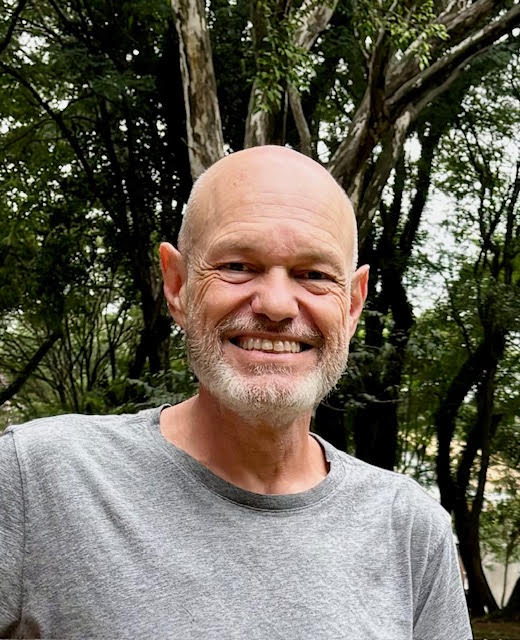
Paulo Pellegrino
Keynote Speakers for Previous Conferences
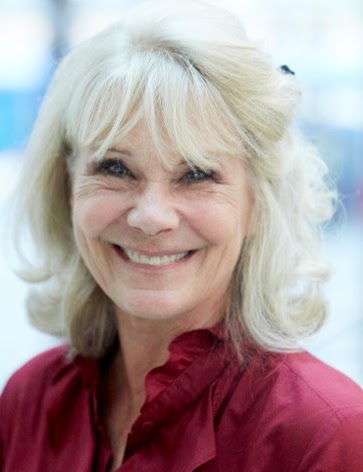
Anne Lusk ( For the Year 2022)
Anne earned her Ph.D. in Architecture/Environment and Behavior from the University of Michigan. Envious of the large data sets in public health, she asked and the Harvard T. H. Chan School of Public Health offered her a Visiting Scientist position. She has been at Harvard Chan for 18 years, publishing and teaching about bicycle facilities, preferences of underserved populations, and public health. With colleagues, their 2011 article on cycle tracks, or protected bike lanes, was the first article in North America to suggest that cycle tracks were safer than biking in the road. She won a Lifetime Achievement Award from the Association of Pedestrian and Bicycle Professionals. She had expanded her studies to address climate change through careful attention to details in the greenway corridor.

Charles A. “Chuck” Flink ( For the Years 2004, 2016, 2022)
Flink is an award-winning author, planner and landscape architect who has completed greenway work in 250 communities, in 37 states, as well as in Europe, Asia, and South America. He is the recipient of four dozen national, regional and local awards. Chuck is a Fellow in the ASLA, he is the 2006 Distinguished Alumnus of the NC State University College of Design, and a 2019 recipient of the NC State University Watauga (WA-TAUGA) Medal -- the highest non-academic award. Chuck is the coauthor of two technical books on greenways: Greenways. A Guide to Planning, Design and Development (1993), and Trails for the Twenty First Century (2001). His most recent book, published in March 2020, is entitled “The Greenway Imperative: Connecting Communities and Landscapes for A Sustainable Future.”
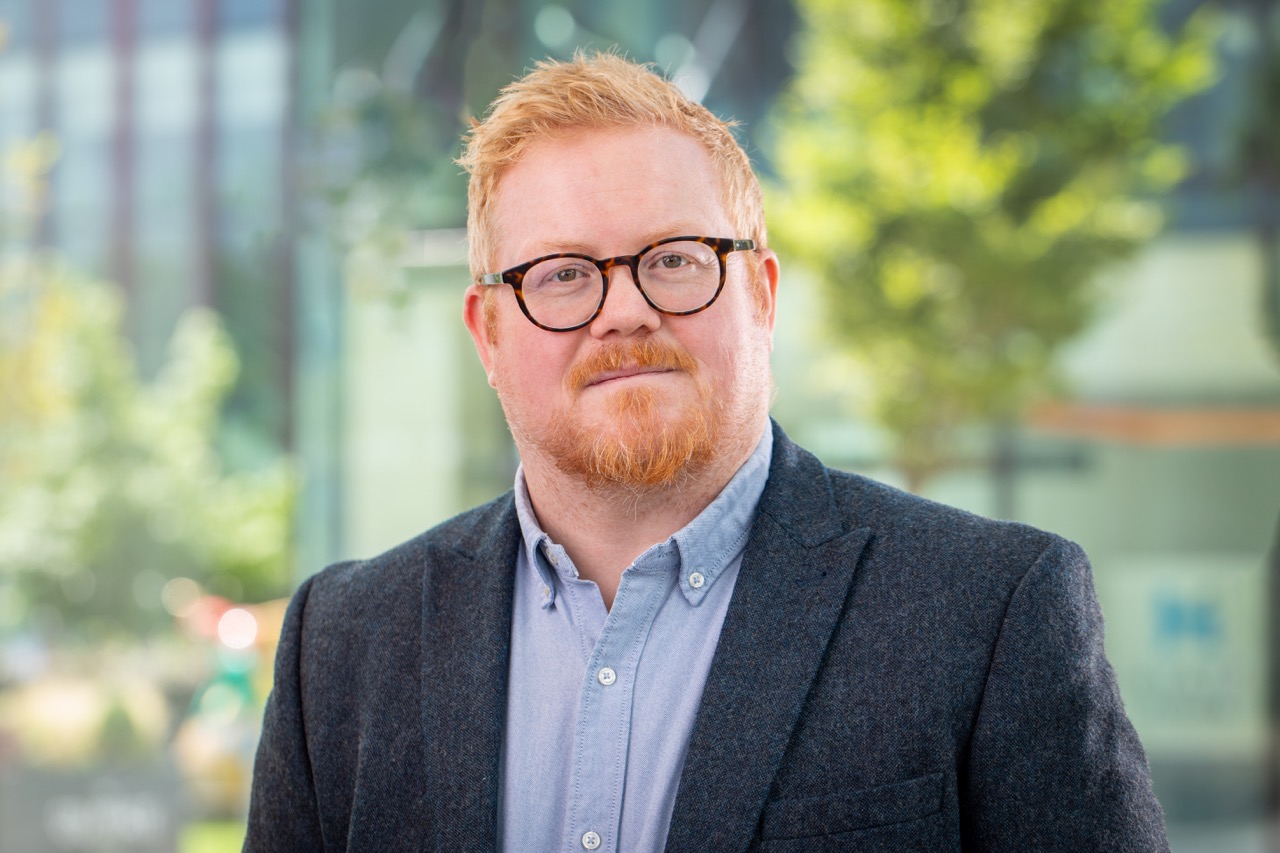
Ian C. Mell ( For the Year 2022)
Ian is a Reader in Environmental & Landscape Planning at the University of Manchester, UK. Ian’s work focusses on the development, application and evaluation of Green Infrastructure policy and practice in the UK and internationally. His work examines the influence of governance, finance, and thematic understandings of landscape quality in the delivery of more sustainable places. Ian has received funding from the EU (Horizon 2020), the Newton Fund and Defra/Natural England to develop evidence supporting the delivery of Nature-Based Solutions and a national Green Infrastructure standard in the UK. He is also the author of Global Green Infrastructure (Routledge, 2016), Planning Cities with Nature (Lemes de Oliveira & Mell, 2019, Springer) and Green Infrastructure Planning: Reintegrating Landscape in Urban Planning (Lund Humphries, 2019).
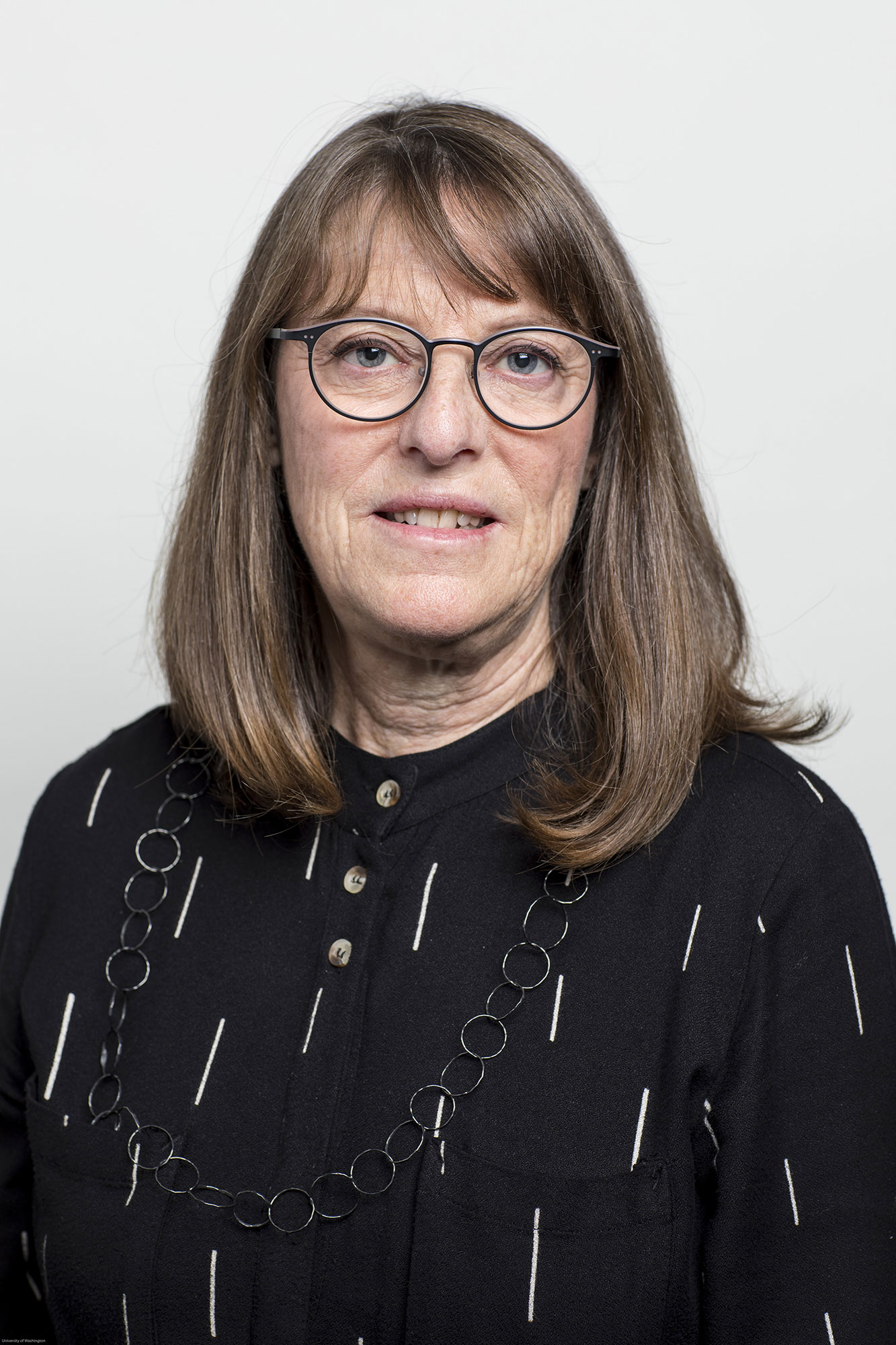
Nancy Rottle ( For the Year 2019)
Nancy Rottle is indeed associated with landscape architecture and the University of Washington. She is a prominent figure in the field, specifically known for her work as a landscape architect and educator. Nancy Rottle serves as the Director of the Green Futures Research and Design Lab at the University of Washington, where she also teaches and conducts research in landscape architecture and urban ecology. Her research interests include sustainable urban design, green infrastructure, and the intersection of ecological systems with urban environments.

Albert Fekete ( For the Year 2019)
Albert Fekete has a PhD and DLA in Landscape Architecture and is a Professor and Dean of the Faculty of Landscape Architecture and Urbanism—Budapest, Szent István University. He is a researcher, teacher, and has been a guest lecturer in several European universities. He is a member of the steering committee of the Hungarian Association of Landscape Architects, a licensed landscape architect, and is licensed for the renovation of heritage sites. He has international design experience, having an office (Lépték Terv Landscape Office) in Budapest since 2000 and the AB PLAN Design Office in Romania since 2007. He has completed more than 60 landscape projects, mainly related to heritage site preservation in Hungary, Romania, Germany, Holland, and Spain. He has won awards in 14 design competitions and has received professional recognition at national and international levels; for instance, he was the “Landscape Architect of the Year” in Hungary in 2012 and 2017, and the won the Europa Nostra Award in the research category in 2014. Besides teaching and planning, he has published over 200 professional and scientifical papers and has vast experience working with universities and professional partners on several international cooperation and research programs (Landscape and Democracy, EuLand21, LED2Leap, etc.).
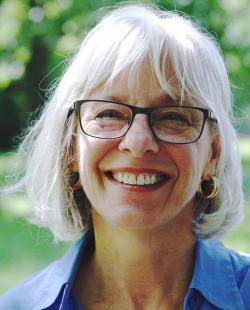
Joan Nassauer ( For the Year 2019)
Joan Iverson Nassauer works in transdisciplinary teams to develop and test ecological designs for their cultural sustainability. At scales ranging from continental implications of agricultural practices to neighborhood implications of green stormwater infrastructure, her work emphasizes human interactions with alternative designs for urban biodiversity and watershed infrastructure and management. As Co-Editor-in-Chief of Landscape and Urban Planning (2014-2021), she led it to become the world’s top-ranked refereed journal in urban studies and planning. She is a Fellow of the American Society of Landscape Architects (1992), Fellow of the Council of Educators in Landscape Architecture (2007), Distinguished Practitioner of Landscape Ecology in the US (1998), and was named Distinguished Scholar by the International Association of Landscape Ecology (2007).

Gina Ford ( For the Year 2016)
Gina Ford is a landscape architect, co-founder and principal of Agency Landscape + Planning. Underpinning her two decades of practice are a commitment to the design and planning of public places and the perpetuation of the value of landscape architecture via thought leadership, teaching, writing and lecturing. Her work has received awards from the American Society of Landscape Architects, the American Planning Association and the American Institute of Architects, among others. She is on the board of directors for the City Parks Alliance and the stewardship council of The Cultural Landscape Foundation. She received the Harvard Graduate School of Design’s Charles Eliot Traveling Fellowship, the Wellesley College’s Shaw Fellowship and the Boston Society of Architect’s Women in Design Award of Excellence.
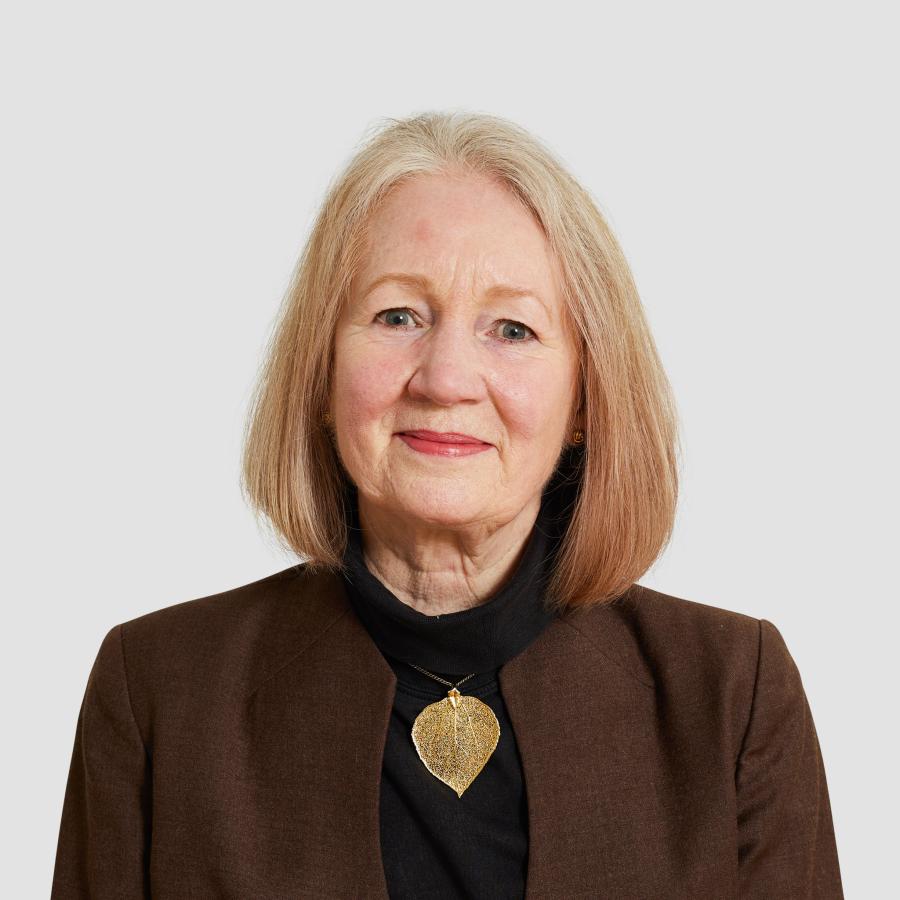
Catharine Ward Thompson ( For the Year 2016)
Catharine Ward Thompson is Professor of Landscape Architecture at the Edinburgh School of Architecture and Landscape Architecture (ESALA), and Director of the OPENspace research centre. Her research focuses on the links between inclusive access to outdoor environments and quality of life, including environment-behaviour interactions, landscape design for older people, children and teenagers, and salutogenic environments. Catharine also has expertise in the history and theory of urban park design and conservation, the history of landscape design, and landscape aesthetics and perception. Catharine was educated at the Universities of Southampton and Edinburgh and has practised as a Landscape Architect in Vancouver, Canada, and in the UK. She was Head of the School of Landscape Architecture at Edinburgh College of Art (ECA) from 1989-2000 and continues to teach at all levels. She is joint Programme Director of the Landscape and Wellbeing MSc programme at ECA and has supervised a number of PhD students in areas relevant to her research.
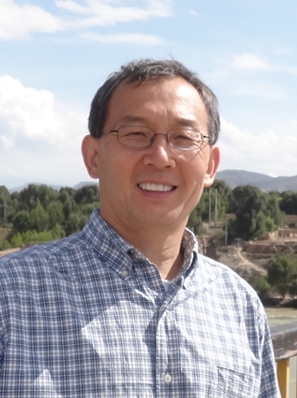
Wei-Ning Xiang ( For the Year 2013)
Wei-Ning Xiang is a National Distinguished Professor at the East China Normal University, Shanghai, China. He is the founder and director of the Global Institute for Urban and Regional Sustainability (GIURS), and directs the Shanghai Key Lab for Urban Ecological Processes and Eco-Restoration (SHUES). He received his BS degree in geography from Beijing Normal University, a masters degree in regional planning from the University of Massachusetts at Amherst, and a doctorate in city and regional planning from the University of California at Berkeley. Dr. Xiang joined the faculty at the University of North Carolina at Charlotte in 1990, and became a Professor of Geography and Earth Sciences in 2001. His scholarly activities have been found in the areas of landscape and land use planning, geographic information science, spatial modeling, and recently sustainable development in China. His scholarly contributions appeared in International Journal of Geographic Information Science, Environment and Planning B, Journal of Environmental Management, and Landscape and Urban Planning. Dr. Xiang was a research fellow at a number of research institutions, including the Institute of Urban and Regional Development (IURD) at Berkeley, the National Center for Geographic Information and Analysis (NCGIA) at Santa Barbara, USA. He is the Co-Editor-in-Chief of Landscape and Urban Planning.
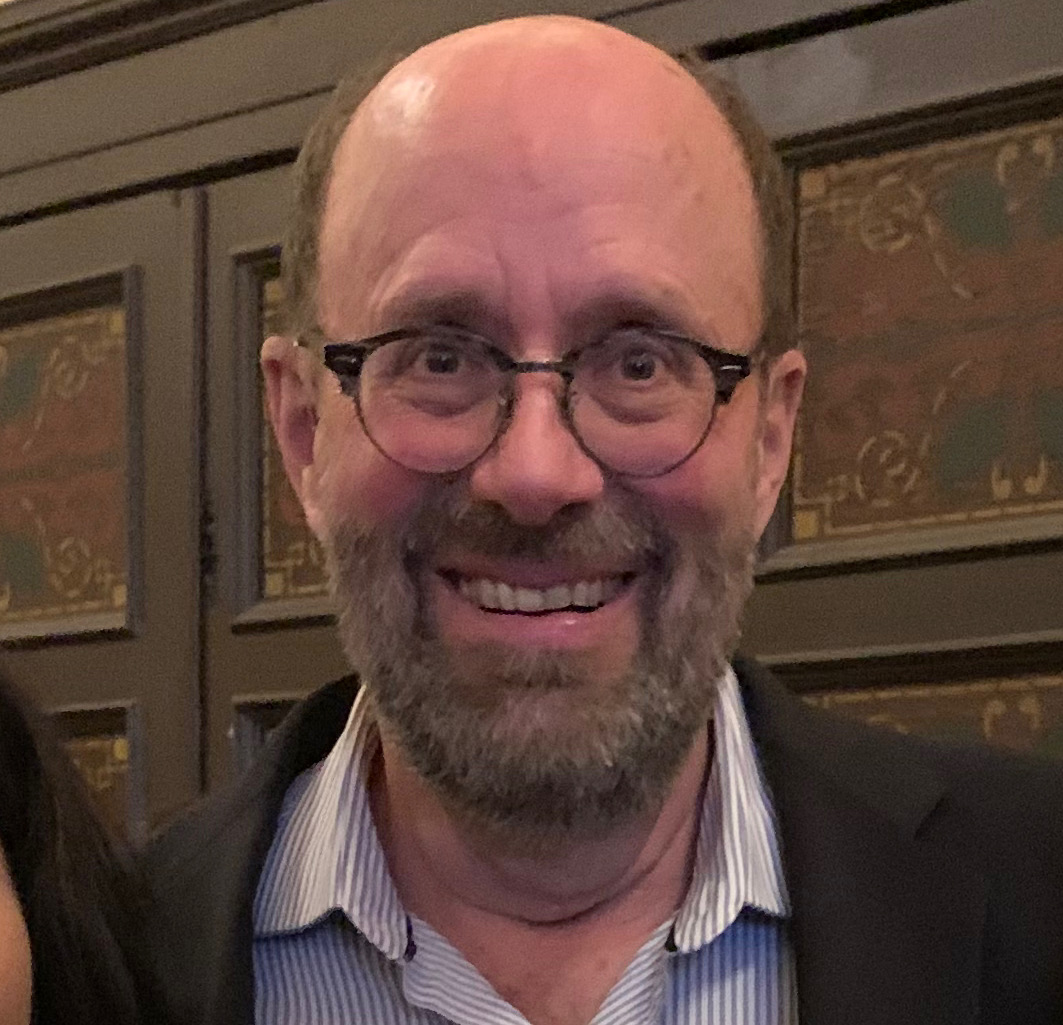
Jack Ahern ( For the Years 2010, 2013)
Jack Ahern, Ph.D., FASLA, FCELA, Vice Provost for International Programs and Professor, Department of Landscape Architecture & Regional Planning, University of Massachusetts Amherst. Ahern holds a BS in Environmental Design (Massachusetts), a MLA (Pennsylvania) and a Ph.D., Environmental Sciences (Wageningen, Netherlands). Registered and Fellow of the American Society of Landscape Architects (ASLA), and Fellow of the Council of Educators in Landscape Architecture (CELA), Ahern has received numerous awards for his work in applied landscape ecology and greenways, including a Fulbright Research Fellowship in Portugal, and Honour Awards from the American Society of Landscape Architects and the Boston Society of Landscape Architects for his focuses on the integration and application of landscape ecology in landscape books and research. His current research is in planning and design, with emphasis on green infrastructure, greenways, and sustainable urbanism at multiple scales.
His authored and co-authored books include: Measuring Landscapes: A Planner¹s Handbook (2006) Biodiversity Planning and Design: Sustainable Practices (2006) Greenways as Strategic Landscape Planning: Theory and Application (2002); A Guide to the Landscape Architecture of Boston (1999); Greenways: the Beginning of an International Movement (1995).
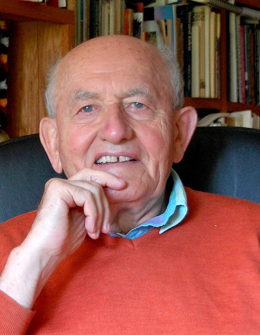
Julius Gy Fabos ( For the Year 2010)
Born on a farm in Hungary in 1932, the landscape architect Julius Fabos survived the Second World War and the onset of Stalinism before escaping to America during the Revolution of 1956. Able to resume his studies, Fabos received his BS in plant science from Rutgers (1961) and MLA from Harvard (1964), joining the faculty at UMass Amherst shortly thereafter while continuing toward a doctorate in Resource Planning and Conservation at the University of Michigan (1973). A charismatic teacher and prolific writer, Fabos is noted internationally for his work on landscape assessment and planning and greenways. In the early 1970s, he helped establish the METLAND (Metropolitan Landscape Planning) interdisciplinary research group, which pioneered the use of GIS technology in landscape planning. Fabos has received numerous honors in his career, including recognition as a Fellow of American Society of Landscape Architects (1985), as a Medalist for the ASLA (1997), and recipient of an honorary degree from the Hungarian University of Horticulture. Fabos retired in 1997.
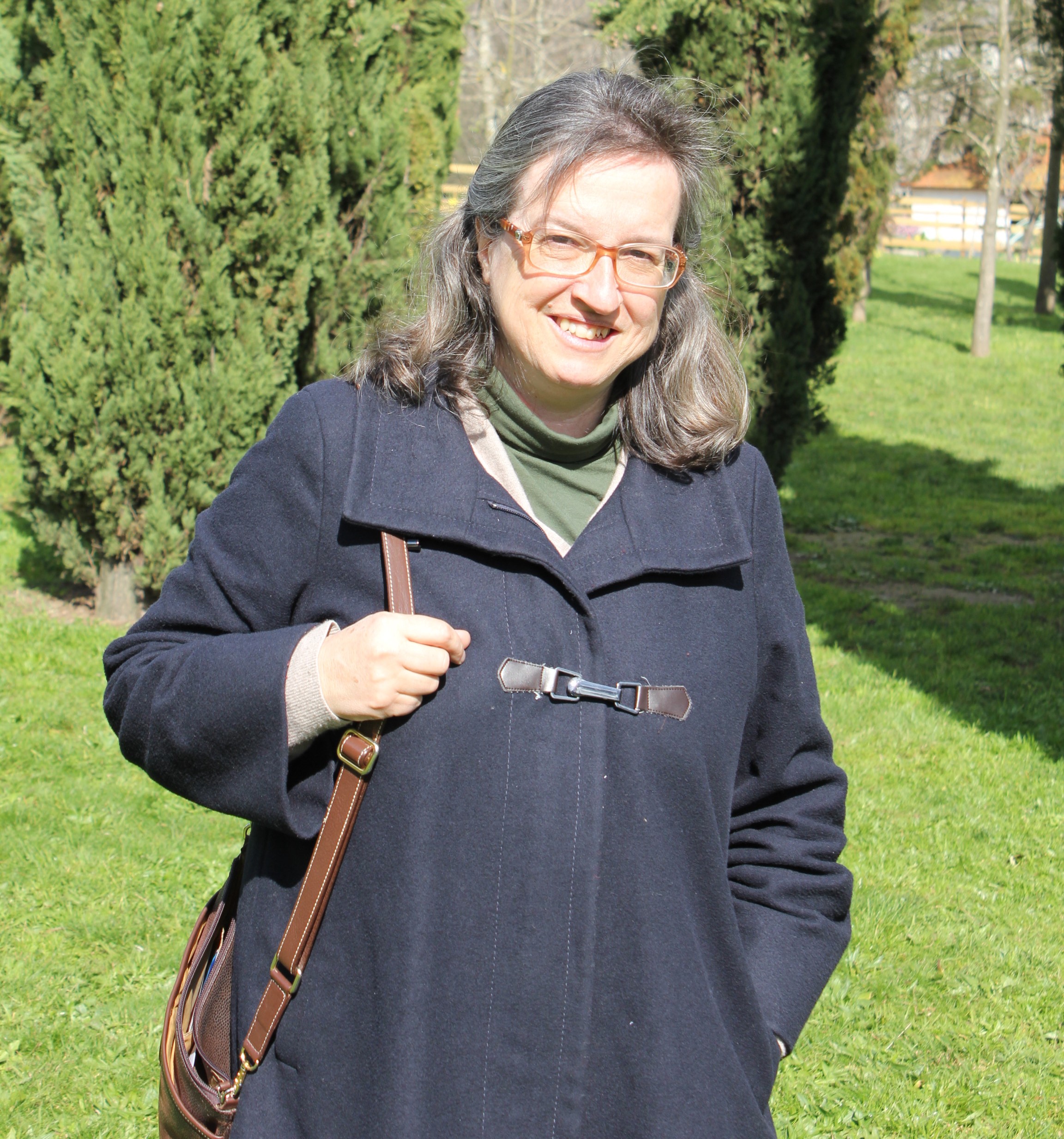
M. TERESA L. ANDRESEN ( For the Year 2010)
Early in her career Teresa Andresen was employed as a Landscape Architecture assistant at the High Institute of Agronomy at the Technical University of Lisbon and from 1987 to 2002 she taught Regional and Urban Planning at the University of Aveiro. She set up the Landscape Architecture Programme at the University of Porto in 2001. Teresa had a major role mentoring students, high quality teaching and research and internationalising the course. She became full professor in 2007 and ended her teaching in 2014. She was an educator and also a practitioner deeply involved in many facets of the profession, aware of the close relationship between education and practice – she was president of the Portuguese Association of Landscape Architects (1992-1994), president of EFLA (2004-2007), and vice-president of IFLA in 2007, member of the Scientific Committee of the European Environment Agency (2002-2008) and Vice President in 2008.
Teresa Andresen research interests include the theory and history of landscape architecture. She was responsible for a ground-breaking investigation on the work of the first Portuguese landscape architects, such as Francisco Caldeira Cabral. She dedicated a significant part of her activity to the study of Portuguese cultural landscapes. She was chairman of the Institute for Nature Conservation, a government body, in 1996-1997 and coordinator of the team that led the High Douro Wine Region to be inscribed in the World Heritage List. Currently she is a member of the National Council of Environment and Sustainable Development and expert in the Permanent Delegation of Portugal to UNESCO World Heritage. Teresa Andresen has been very influential both nationally as internationally, she has mentored generations of landscape architects and she has contributed actively to the development of the formal education and to the visibility of the profession and its achievements.

Patrick W. Caughey ( For the Year 2007)
For over twenty years, Pat Caughey has successfully balanced his practice of landscape architecture with his commitment to ASLA. A graduate of the University of Arizona (Cum Laude), he is a licensed landscape architect in four states. Pat began working for the award-winning firm that now bears his name in their Phoenix office in 1985. He transferred to San Diego in 1987, became principal in 1990 and subsequently partner and owner in 1995. Today he oversees the daily practice of Wimmer Yamada and Caughey and enjoys his involvement in its many varied design projects. He is proud to have been recognized as an innovative leader in landscape design practices in the southwestern region of the U.S. with an emphasis in sustainable and water conserving landscapes.
Pat’s long history of involvement with the American Society of Landscape Architects began in 1984 when he co-founded the first ASLA student chapter at ASU. In 1989 he served as Chair of the San Diego Chapter Professional Awareness Committee, was Chapter Vice President in 1990 and became Chapter President in 1993. From 1995-1998 he served as a member of the Board of Trustees and in 1998 was elected ASLA National Vice President for Professional Practice. This position afforded him tremendous opportunity to meet other members and to contribute his expertise to numerous committees and task forces. He assisted in the planning of the centennial meeting in Boston and was Co-Chair of the annual meeting in San Jose. Pat was inducted into the Class of Fellows in 2004.Despite the many opportunities he has had over the years to promote the profession, Pat’s greatest achievements have been inspiring his staff to take an active role in ASLA and in attracting national and international students to the profession through internships. Recently appointed as a National Director with ACE (Architecture Construction and Engineering mentoring program), he looks forward to being involved in attracting young people to the profession from his interaction with high school students.

Thomas Balsley ( For the Year 2007)
Mr. Balsley is the founder and principal designer of Thomas Balsley Associates, a New York City-based, award-winning design firm specializing in landscape architecture, urban design and site planning. An active member of the design community, Mr. Balsley has participated as a panelist and lecturer for the Municipal Art Society, The Institute for Urban Design and The Parks Council. He has also been a guest lecturer and design critic throughout the United States, Canada and the Far East-—at the National Building Museum, the International Downtown Association, the Rhode Island School of Design, and at Harvard’s Graduate School of Design.Balsley’s designs have been internationally recognized by professional and civic organizations, including The American Society of Landscape Architects, The Waterfront Center, EDRA/Places, and American Institute of Architects. He has appeared the New York Times, Land Forum, Landscape Architecture, Progressive Architecture, L’Arca, Arredo Urbano, Sculpture, International Design as well as Places, Chinese Architect, and Japan Landscape magazine. Spacemaker Press published a monograph of Balsley’s work, entitled “Thomas Balsley: The Urban Landscape" with an introduction by Peter Walker. Mr. Balsley is a registered landscape architect and a graduate of Syracuse University and the State University of New York College of Environmental Science and Forestry. He is certified with CLARB. In an unexpected gesture of recognition for his contributions to landscape architecture and the public, a park he designed on 57th Street in Manhattan was renamed in his honor as Balsley Park.
